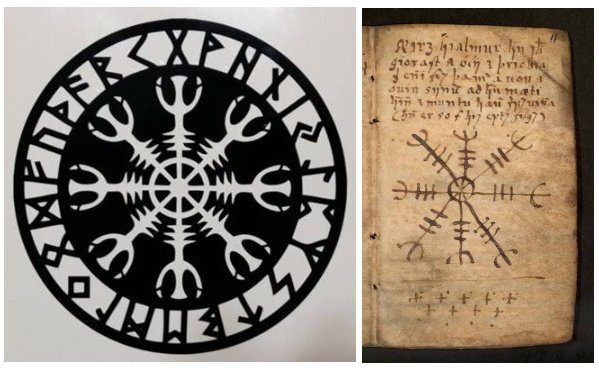

The bodies of dead berserkers were laid out in bearskins prior to their funeral rites. The berserkers maintained their religious observances despite their fighting prowess, as the Svarfdæla saga tells of a challenge to single-combat that was postponed by a berserker until three days after Yule.

It is proposed by some authors that the berserkers drew their power from the bear and were devoted to the bear cult, which was once widespread across the northern hemisphere.
#NORDIC WARRIORS SYMBOLS SKIN#
The runestone Vg 56 at Källby in Västergötland, which may show a beserker in animal skin In the spring of 1870, four cast-bronze dies, the Torslunda plates, were found by Erik Gustaf Pettersson and Anders Petter Nilsson in a cairn on the lands of the farm No 5 Björnhovda in Torslunda parish, Öland, Sweden, one of them showing what appears to be a berserker ritual. Nowhere else in history are Germanic bear-warriors and wolf-warriors fighting together recorded until 872 AD with Thórbiörn Hornklofi's description of the battle of Hafrsfjord when they fought together for King Harald Fairhair of Norway. Scene 36 on the column shows some of these warriors standing together, with some wearing bearhoods and some wearing wolfhoods. There are warriors depicted as barefoot, bare-chested, bearing weapons and helmets that are associated with the Germani.
#NORDIC WARRIORS SYMBOLS PLUS#
The scenes show his Roman soldiers plus auxiliaries and allies from Rome's border regions, including tribal warriors from both sides of the Rhine. The bas relief carvings on Trajan's column in Rome depict scenes of Trajan's conquest of Dacia in 101–106 AD. Three main animal cults appeared: the bear, the wolf, and the wild boar. It is proposed by some authors that the northern warrior tradition originated from hunting magic. Thirteenth-century historian Snorri Sturluson interpreted the meaning as "bare-shirt", that is to say that the warriors went into battle without armour, but that view has largely been abandoned. It likely means " bear-shirt" (compare the Middle English word ' serk, meaning 'shirt'), "someone who wears a coat made out of a bear's skin". The Old Norse form of the word was berserkr (plural berserkir).


 0 kommentar(er)
0 kommentar(er)
